MIAMI—Over two months, Haiti faced major crisis after major crisis. First, the sudden assassination of President Jovenel Moise, then a 7.2 magnitude earthquake killed more than 2,000 people and leveled parts of the country.
On top of that, Tropical Storm Grace recently brought heavy rain, wind, and mudslides hampering search efforts.
Foreign countries are rushing to send assistance, but the Haitian Diaspora is calling on its people, in particular, to restore the country.
L’Union fait la force (Union brings strength)
The people of Haiti are no strangers to unifying to achieve a common cause. It was the driving force behind the iconic Haitian Revolution. Now Haitian-led organizations are calling for that same unity, hundreds of years later.
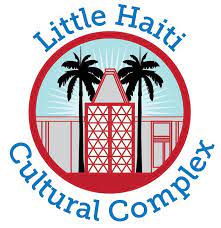
“The energy that we are seeing is collaboration,” said Patrick Muhammad, the 7th Regional representative of the Honorable Minister Louis Farrakhan and the Nation of Islam.
Mr. Muhammad, who is of Haitian descent, has family and friends in Haiti. He says organizations, as well as his cousins within the U.S., have reached out to him, looking to collaborate to help the island. Haitian-American organizations in Miami, Fla., are also mobilizing. Among the efforts is the “Ayiti Recovery Fund,” which was created to collect medical supplies and monetary donations. Participating organizations, including Ayiti Community Trust, The Smile Trust, Sant La Neighborhood Center and others are primarily run by Haitian-American individuals or other members of the Black family.
Sandy Dorsainvil, manager of the Little Haiti Cultural Center, a staple and cultural hub in Miami’s Little Haiti neighborhood, was present at the relief action. She says about 20 Haitian-American organizations, as well as social justice organizations, are collaborating in this effort. She says it’s important for local organizations who support Haitian-Americans and Black people, in general, to take a leadership role and form relationships with organizations that they’ve vetted.
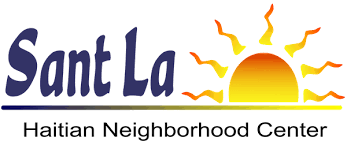
“Who else is going to have a more passionate and a more vested interest in the improvement, and in the success of the country than people who are from that country and/or people who are people of color?” Ms. Dorsainvil said. “So it’s really important that we take an active role, a leadership role, and that we set the tone of how relief is going to happen in the area.”
Ms. Dorsainvil said their efforts and partnerships with solid organizations who are doing real work in Haiti can also provide the country with an economic boost. She says it’s about making sure the donations go where they’re supposed to go, and that they circulate within the country.
This was a similar message during an Aug. 19 news conference in Miami led by the Haitian-American Professionals Coalition (HAPC). The organizations that make up the coalition called for support and solidarity from Haitian organizations to work as a collective in coordinating relief efforts and addressing the devastation.
“As we work to rebuild our beloved nation, we must come together in the spirit of genuine collaboration built on trust and transparency to ensure that we provide Haiti with the resources that it needs to rise again,” said Vanessa Joseph, vice-chairperson of the coalition, during the news conference.
The idea of unity and affinity among Haitians in Haiti, and the Haitian Diaspora, is circulating strongly. And part of that is to make sure the scavengers who’ve previously taken advantage of Haiti don’t prosper once again.
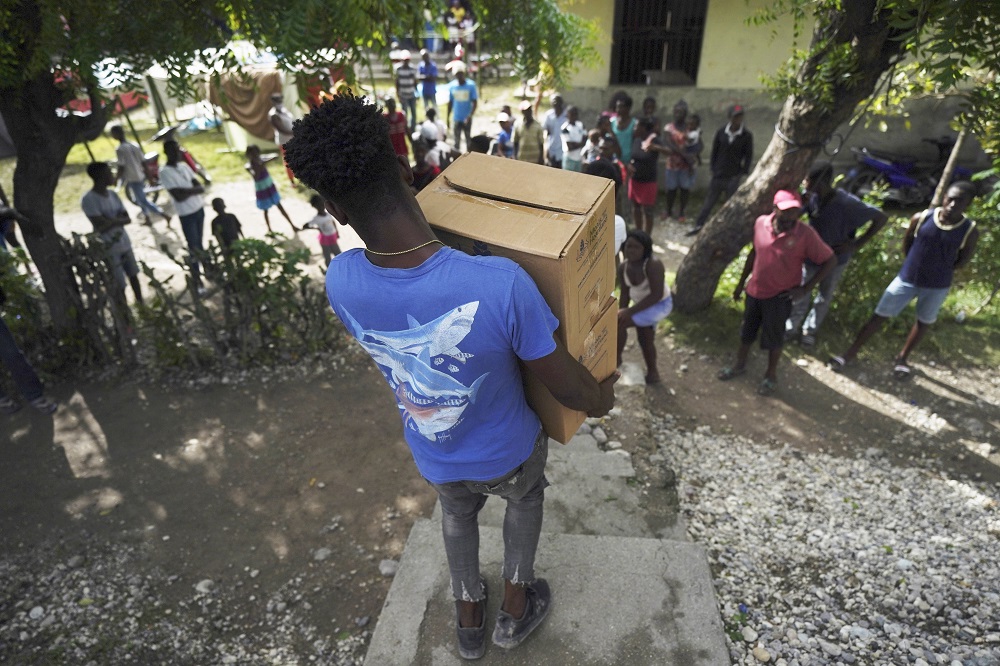
Haiti––the playground of White NGOs
The handling of relief funds for Haiti has been a major concern and controversy. In 2010, after a 7.0 magnitude earthquake struck Haiti and killed more than 200,000 people, the American Red Cross set up a fundraising effort. However, of the millions of dollars donated, Haiti saw less than scraps.
Jemima Pierre, the Haitian/American coordinator for the Black Alliance for Peace, says out of all the organizations that made money off of Haiti’s suffering in 2010, the American Red Cross’ profiteering was the most egregious.
“They raised half a billion dollars, that’s $500 million … and built six houses,” she points out.
An investigation launched by National Public Radio and ProPublica found this to be true. After digging through the Red Cross’s records in 2015, and conducting dozens of interviews with officials, the news organizations found the charity claimed “it has provided homes to more than 130,000 people, but the number of permanent homes the charity has built is six.” Furthermore, the report says it found “a string of poorly managed projects, questionable spending and dubious claims of success.”
Joseph Makhandal, an attorney and Haitian representative for Minister Farrakhan, said the American Red Cross faced no accountability for mishandling funds meant for Haiti.
“We always heard that expression that says, where there is crisis, there’s opportunity. Well, there is opportunity for those who create the crisis in the first place,” Mr. Makhandal said. “And what did the Red Cross do? They received $500 million from donations, and to turn around and build between three and six houses in Haiti, and no accountability … Where did that money go?”
Pictures on social media show Cuban doctors assisting people in Haiti. France24, a French-owned news outlet, reports a brigade of 253 Cuban doctors was deployed to Haiti. An Ecuador fire department says it was preparing to send personnel, and other Latin American countries, such as Mexico, Chile, Argentina, Peru and Venezuela, pledged to help.
Ms. Pierre says while this goes on, and Haitians scramble to solve their problems, nongovernmental organizations (NGOs) swoop in and benefit from the crises.
“Look, Haitian people have been taking care of themselves,” she said. “People call Haiti the Republic of NGOs.”
These NGOs include charities, non-profits, orphanages, churches and others that are supposed to have an altruistic or socially-driven, not profit-driven, motive. But in Haiti, employees of these groups have often lived in luxury and wielded great power because of their money and services they provide, whether food, clothing, housing, water or education.
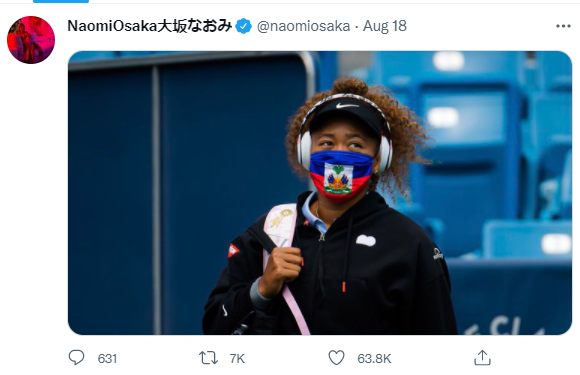
Often functions that should be the purview of government or government entities have been ceded to these organizations, building their power, and keeping Haitian government weak. Often the excuse of Haitian corruption is given to justify outsiders handling millions of dollars, but these groups have their own problems with corruption and lack of accountability. NGOs workers have also abused and exploited Haitian people, Haitian children, and Haitian women.
According to a brief published by the United States Institute of Peace, “Concerns about the role of nongovernmental organizations (NGOs) in Haiti’s development have been present for decades. However, these issues have gained increasing prominence following the January 12, 2010 earthquake that destroyed much of Port-au-Prince.” Thousands of NGOs operated in Haiti, supposedly to improve the conditions in the country, but Ms. Pierre says they’re doing more harm than good.
“[Haiti was] under UN occupation for 17 years,” she says. “There’s still trash in the streets, there’s still not a great health care system. We have to just be very careful in terms of calling for aid and giving them money through these White NGOs to disperse as opposed to working with Haitian-American organizations here that have direct contact with Haitians on the ground and sending money and supplies through them and not through the West.”
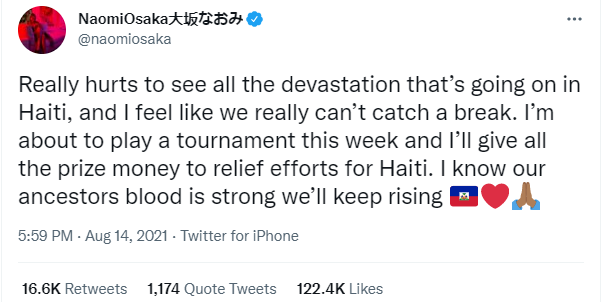
She went on to say that people should hold off and pay attention to what the Haitian people are saying.
“Don’t give money to these large Western nongovernmental organizations, and just wait to see what people want from the ground,” she advises. “I don’t think anyone should give any money to the Red Cross, or any of these Western organizations. And then it also has to go through local people, local Haitians.”
‘Haiti is not just a country; Haiti is an idea’
In 2011, Minister Farrakhan visited Port-au-Prince and encouraged the Haitian people to unite for their own salvation. “This is your land,” he said. “Everything on it is yours! Everything under it is yours! And when your mind is free from the chains of ignorance and self-hatred, then we will free the land! We will feed ourselves again! We will grow the cotton, turn it into lint and cloth, and clothe ourselves again! We will take the wood from the trees and remove the tents and build houses for the people of Haiti to live in!”

“This is not going to come from outside, it’s going to come from you and those who love you that help you rise to your destiny,” Min. Farrakhan continued.
Organizations, advocates, and individuals of Haitian descent appear to be coming closer to this sentiment. The HAPC is not only looking for collaboration, but also solutions.
“As a coalition of organizations, our mission in this endeavor is simple,” Ms. Joseph says during the news conference. “We must, as Haitian-led organizations, band together and do all that we can to ensure that one, we address the gaps in service that often exist when organizations fail to work together.”
She further calls for Haitians, and non-Haitians, to contribute to the country’s rebuilding and uplifting the stories of Haitians in Haiti.
As Haiti currently faces some of its biggest obstacles, including political strife and a humanitarian crisis, the answer Haiti needs is right within its people.
“Haiti is not just a country. Haiti is an idea,” Mr. Makhandal says. “Haiti is a symbol of the fight for freedom, justice and equality, the first independent Black nation in the history of the New World that answered the call, that submitted their will to do the will of God in fighting against the enemy of justice, the enemy of freedom and the enemy of equality. … They were able to establish their peace when they declared themselves independent from not only France, but from all enemies of freedom, justice and equality. Looking at it from this perspective, we have to see Haiti as the maker of the liberation struggle for all oppressed people. Because that country not only freed themselves, but they also went out of their way to help other nations, or other people to free themselves, like Latin America.”













